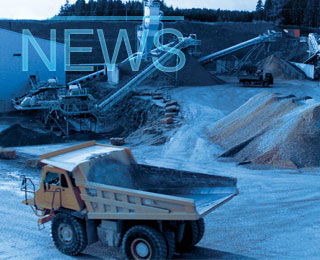Total cement dispatches in Pakistan dropped 12.6 per cent YoY to 3.552Mt in June 2024 from 4.063Mt a year earlier, according to the All Pakistan Cement Manufacturers Association (APCMA). Local dispatches contracted 11.9 per cent YoY to 3.079Mt from 3.487Mt in June 2023. Exports also fell in June, declining 17.9 per cent YoY to 472,865t down from 576,309t a year earlier.
North-south dispatches
Dispatches from cement plants in the north of Pakistan shrank 7.7 per cent YoY to 2.723Mt in June 2024, down from 2.95Mt a year earlier. Of this total, sales to domestic markets amounted to 2.614Mt, a decrease of 8.5 per cent YoY from 2.95Mt. Meanwhile, exports from north-based mills expanded 14.2 per cent YoY to 108,861t, up from 95,333t in June 2023.
Sales from cement plants in the south of the country fell 25.5 per cent YoY to 829,582t in June, down from 1.113Mt a year earlier. Local domestic sales contracted 26.3 per cent YoY to 465,578t, down from 635,959t, while exports per cent fell 24.3 per cent YoY to 364,004t, down from 480,9762t in March 2023.
Cumulative dispatches in FY23-24
Cumulative dispatched for the FY23-24 show total cement sales amounted to 45.291Mt, up 1.6 per cent YoY from 44.579Mt in the FY22-23. Domestic dispatches during the period were 38.181Mt, a decline of 4.6 per cent YoY from 40.013Mt the previous fiscal year. Exports recorded a notable 55.7 per cent YoY increase during the period, coming in at 7.11Mt up from 4.566Mt previously.
Outlook
Domestic cement sales continue to decline and are down by almost 10Mta since their peak in the FY20-21. At the same time, while exports grew strongly in the recent fiscal year, they remain 2Mt below that reported in FY20-21.
An APCMA spokesperson stressed the importance of the domestic market and called for serious attention from policymakers, noting the need to lower duties and taxes on cement and stating “cement is not a luxury item but a basic necessity. The government must take measures to reduce construction costs to make it affordable for the masses”.
Domestic demand will remain constrained amid the proposed doubling of the sales tax on cement from PKR2000/t (US$7.17/t) to PKR4000/t, which is estimated to add PKR120/bag. As such non-government-backed construction will remain under pressure. Total construction output contracted 10.9 per cent YoY in the final three months of 2023, according to the Pakistan Bureau of Statistics, PBS.
Strong infrastructure spending will provide an upside to demand in the FY24-25 fiscal year, with the government announcing a record PKR1.5trn spend on the Federal Public Sector Development Programme targeting transport and utility projects.
Nevertheless, further downward drags on cement demand include a moderate economic growth outlook. Despite GDP growth accelerating in the latest quarter, provisional data show growth of 2.4 per cent YoY for the FY23-24, well below the 6.2 per cent recorded in FY21-22 and the World Bank is forecasting GDP growth of just 2.3 per cent YoY in the FY24-25.
At the same time, cooling inflation and lower interest rates are welcome news but both remain relatively elevated and the central bank has noted “a risk of inflation to rise significantly” amid adjustments in electricity and gas tariffs. The inflation rate has dropped from a high of 38 per cent recorded May 2023 to 12.6 per cent in June and the central bank lowered the headline interest rate by 150 basis points to 20.5 per cent at the June meeting.
Some refocus towards export markets will bolster Pakistan’s cement producers helped by the rupee’s competitiveness versus the US dollar and a normalisation of trade relations with India and strengthening economic conditions in key export markets such as Sri Lanka, which reported imports up 4.4 per cent YoY in the 4M24. Indeed, Power Cement noted in its analyst briefing at the end of June that it is targeting new export markets, including the US and UK.

Cement prices recovering in China
Cement prices in China are rebounding strongly as producers seek to improve profitability follow...